Workers Pry Baby Monkeys Away From Their Mothers, Electroshock Penises, and More in Deranged Lab
A six-month PETA undercover investigation into the Wisconsin National Primate Research Center (WNPRC)—which keeps 2,407 monkeys in barren steel cages and bleak windowless rooms—found that highly intelligent animals were being neglected, driven mad by extreme long-term confinement, and attacked by their traumatized cagemates.
Severe Confinement, Constant Stress, and Mutilation
Monkeys at WNPRC spend every day and every night locked in barren metal cages. They never feel the warmth of the sun on their backs or the earth beneath their feet. Stripped of their autonomy, they’re not able to make decisions regarding the most basic aspects of their lives. Constant, unremitting captivity causes these smart, sensitive animals extreme psychological distress, leading some to injure each other and themselves.
A baby monkey, named Cocoa by PETA’s investigator, was attacked by a severely stressed adult macaque, resulting in deep, painful cuts to her face. Months later, her wounds still had not fully healed, and she clung to her mother in fear.
Incompatible animals were forced to live together in just a few square feet of space. A monkey named Ellie lost part of her ear in a fight with a cagemate.
Amputations of parts of fingers, toes, and tails were a common result of the traumatic injuries sustained by monkeys in WNPRC’s care. A worker said that some of these highly intelligent animals were caged alone “because they’re a**holes” who “beat the crap out of” each other—completely ignoring the fact that the fights were a result of the monkeys’ unnatural, barren living conditions.
One frustrated monkey, known only as r12050, mutilated his own leg down to the muscle. With nothing to occupy his mind, he picked and scratched compulsively at the open wound.
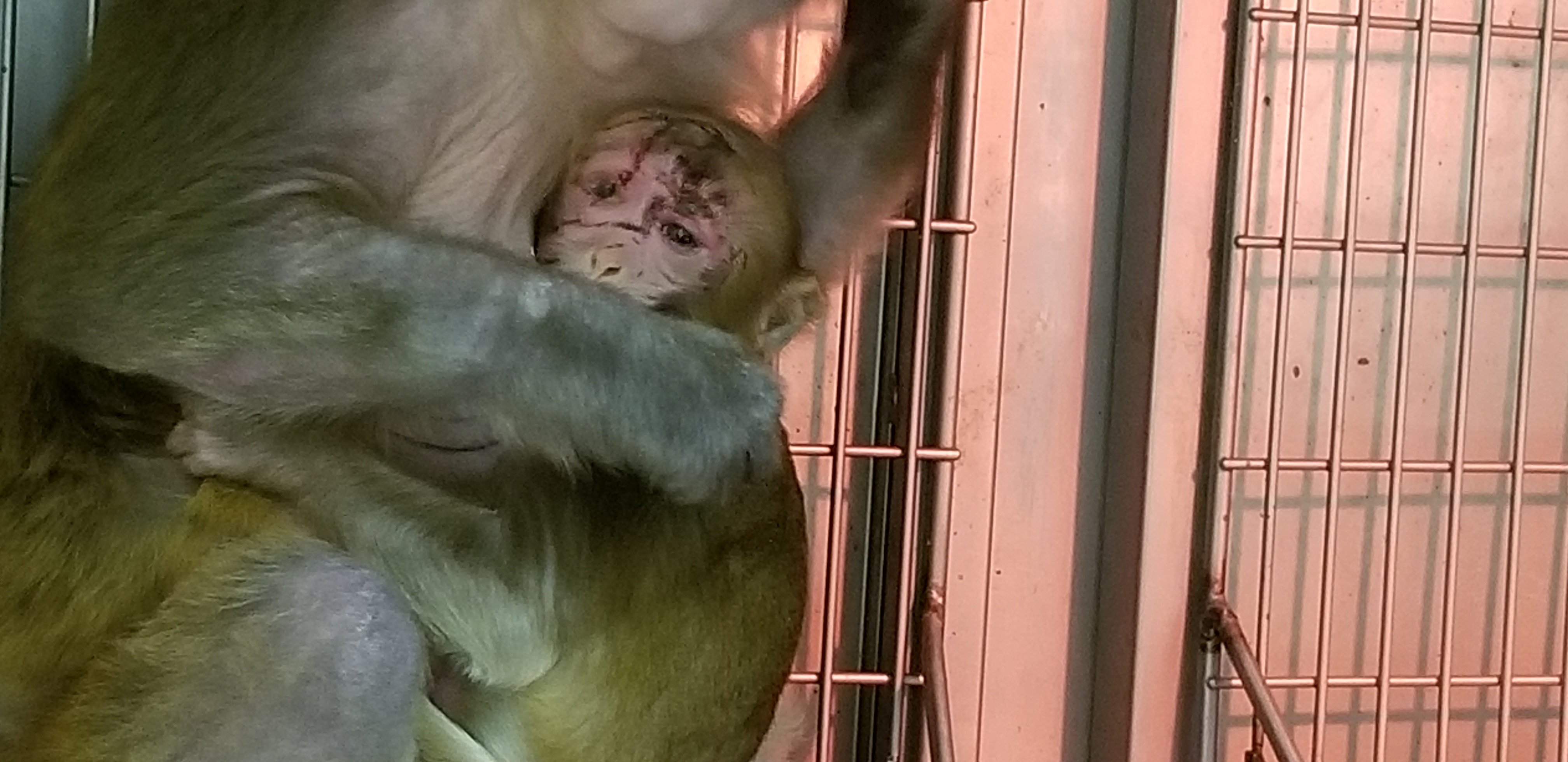
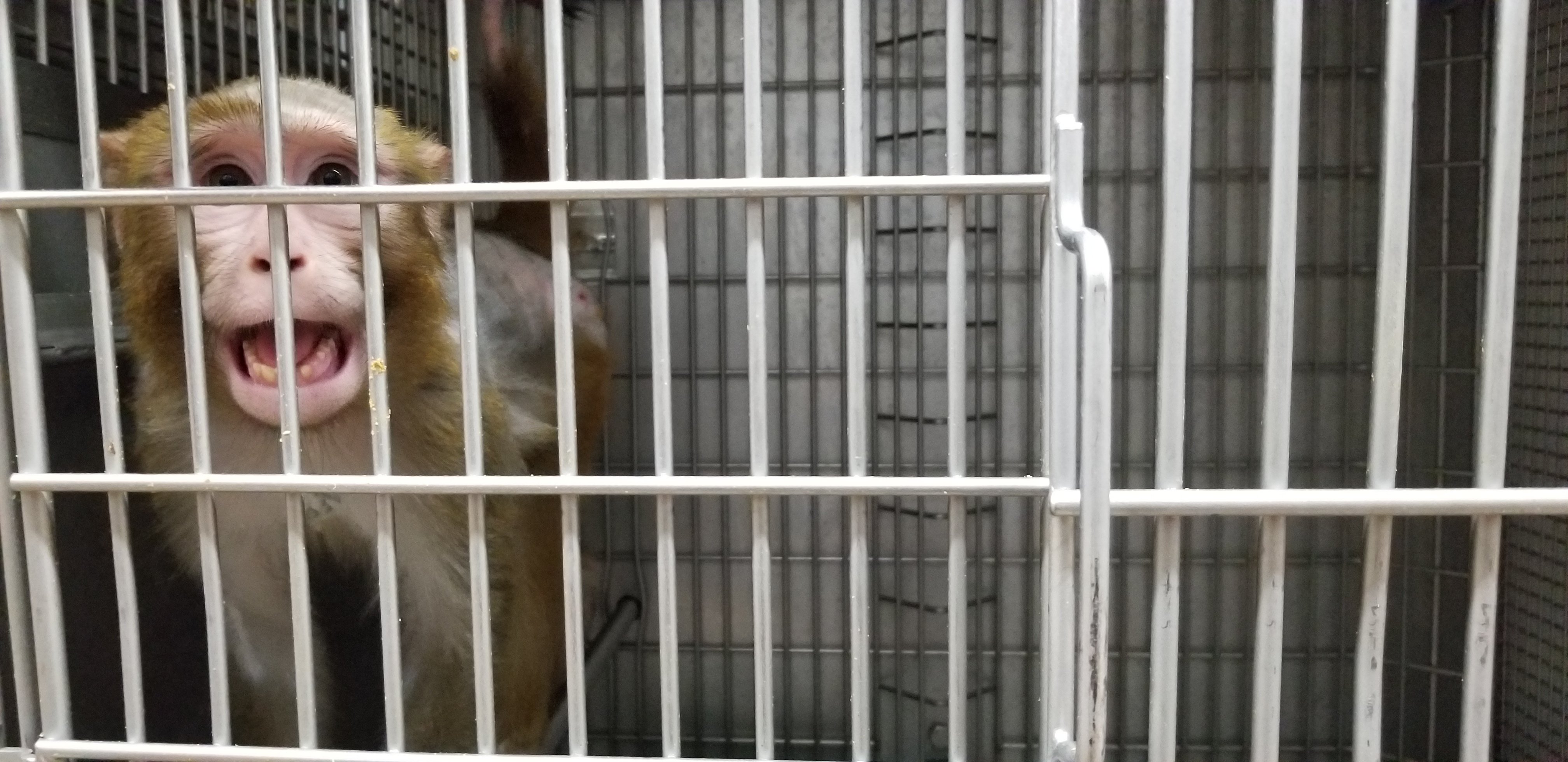
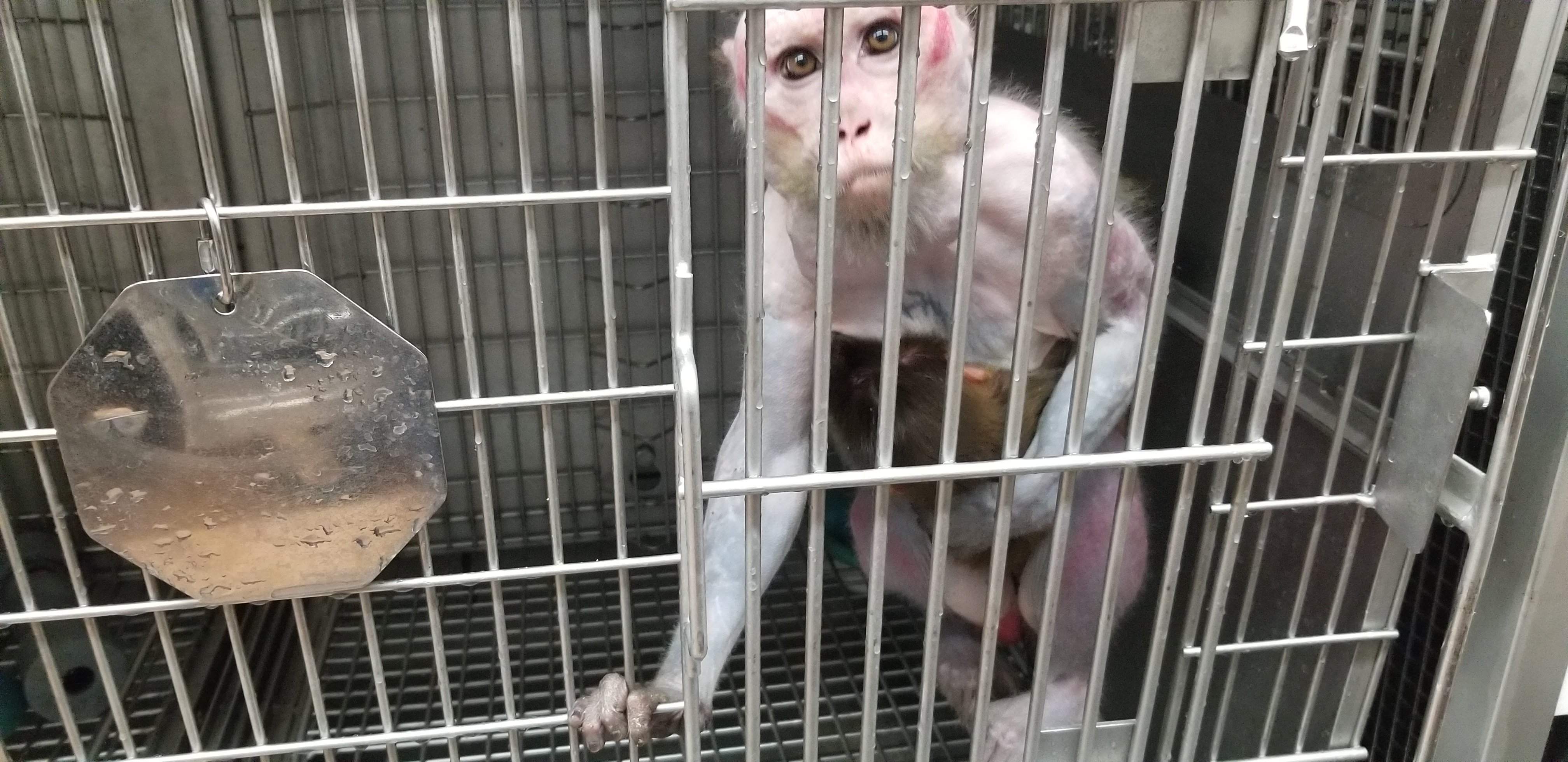
'We're Not Supposed to Say They Look Depressed'
Highly intelligent, social macaques—who, in their natural habitats, explore and roam vast grasslands and lush forests—paced, circled, and shrieked in the never-ending lockdown. One monkey, Sainte, rocked continuously from side to side, all alone and miserable in a tiny cage.
Cornelius had simply given up. He had been at the lab for a decade—usually caged all alone—and sat constantly hunched over or with his face against the cage bars, having lost the will to live. A supervisor said that staff were “not supposed to say” that monkeys “look depressed,” but admitted that they absolutely do. The supervisor granted our investigator’s request to provide Cornelius with extra “enrichment” items—such as a log or a cardboard tube filled with shredded paper—to occupy his mind but said, “Just know that when you’re not in there, it’s probably not gonna happen.”
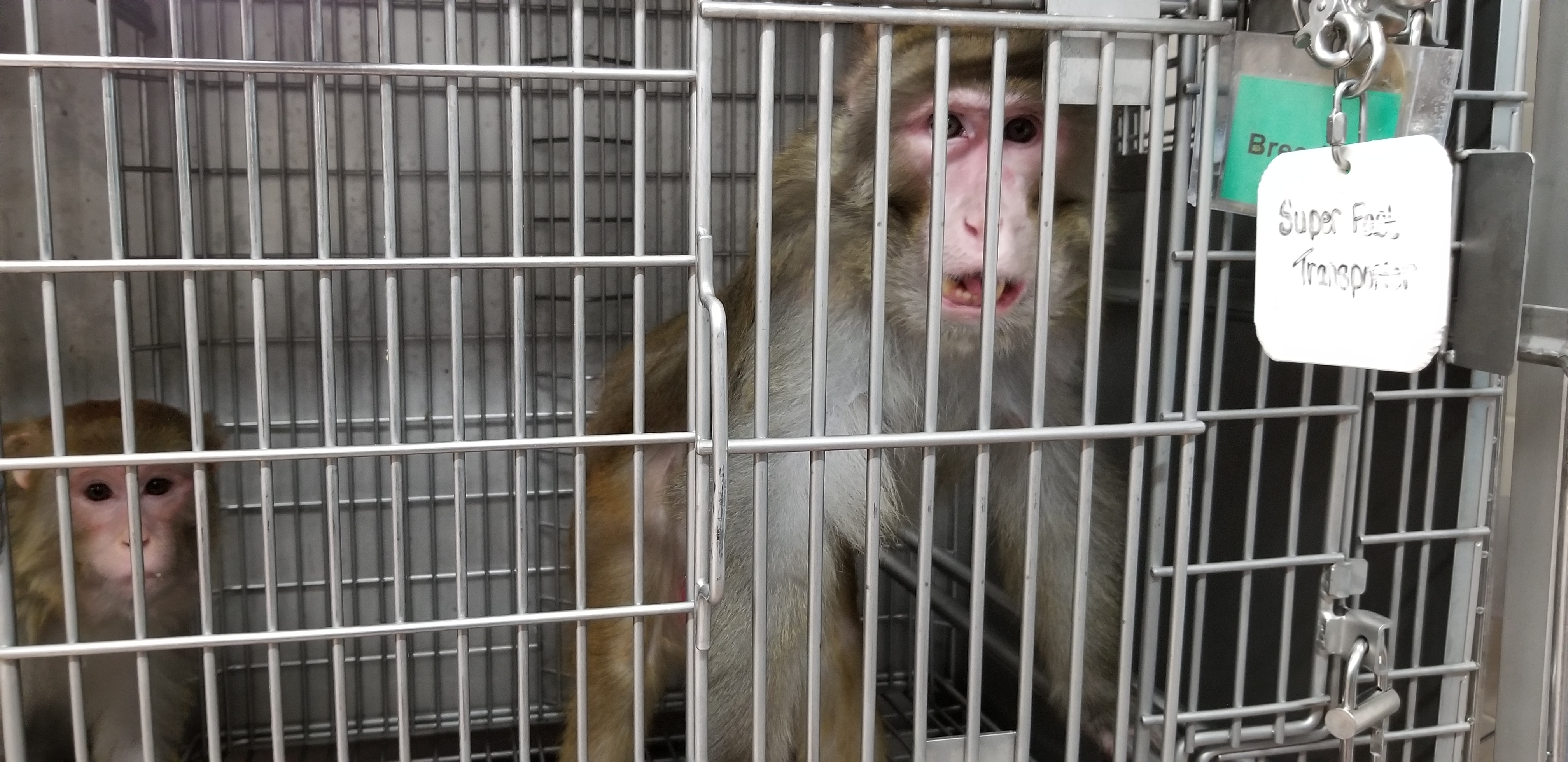
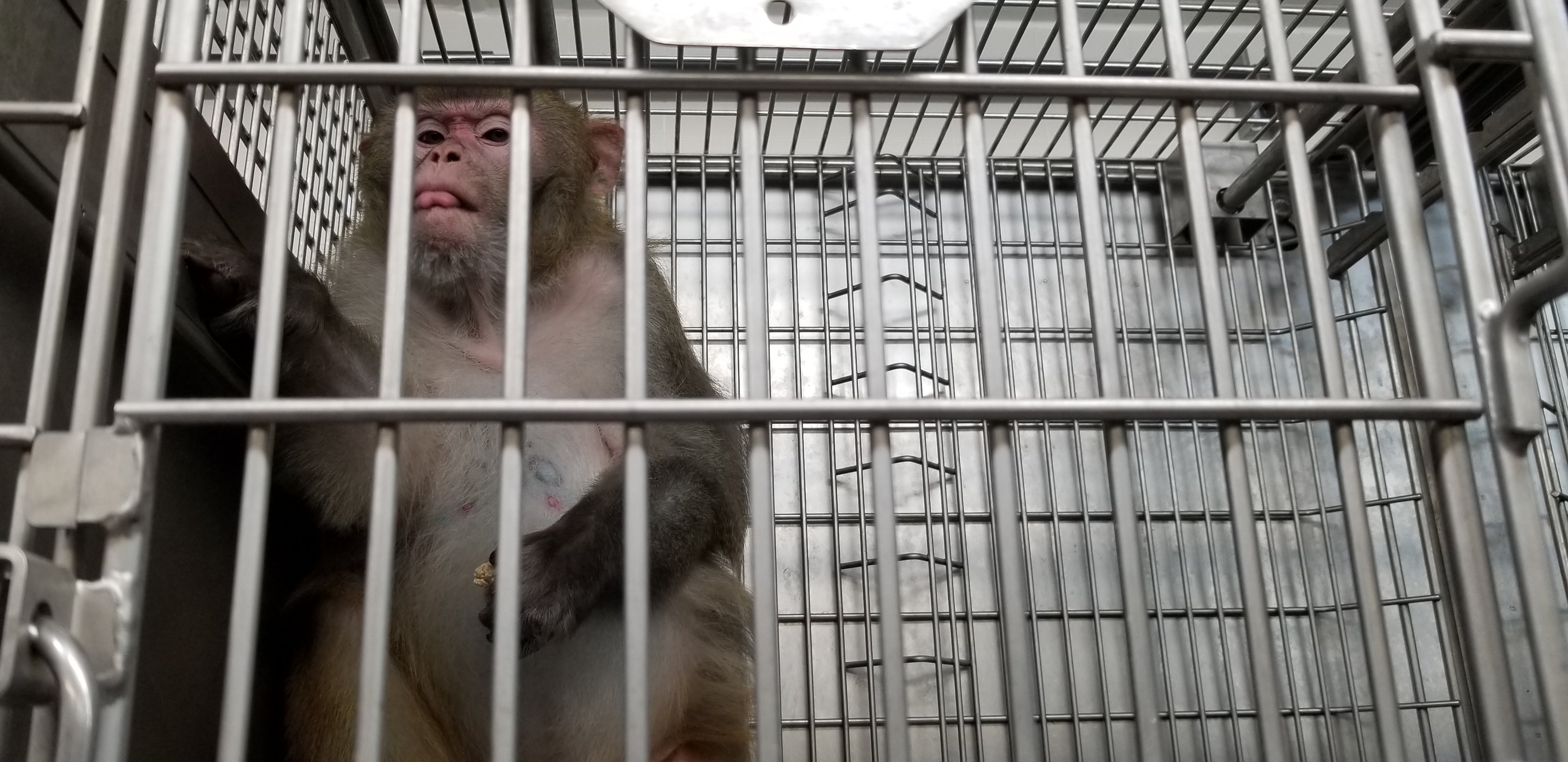
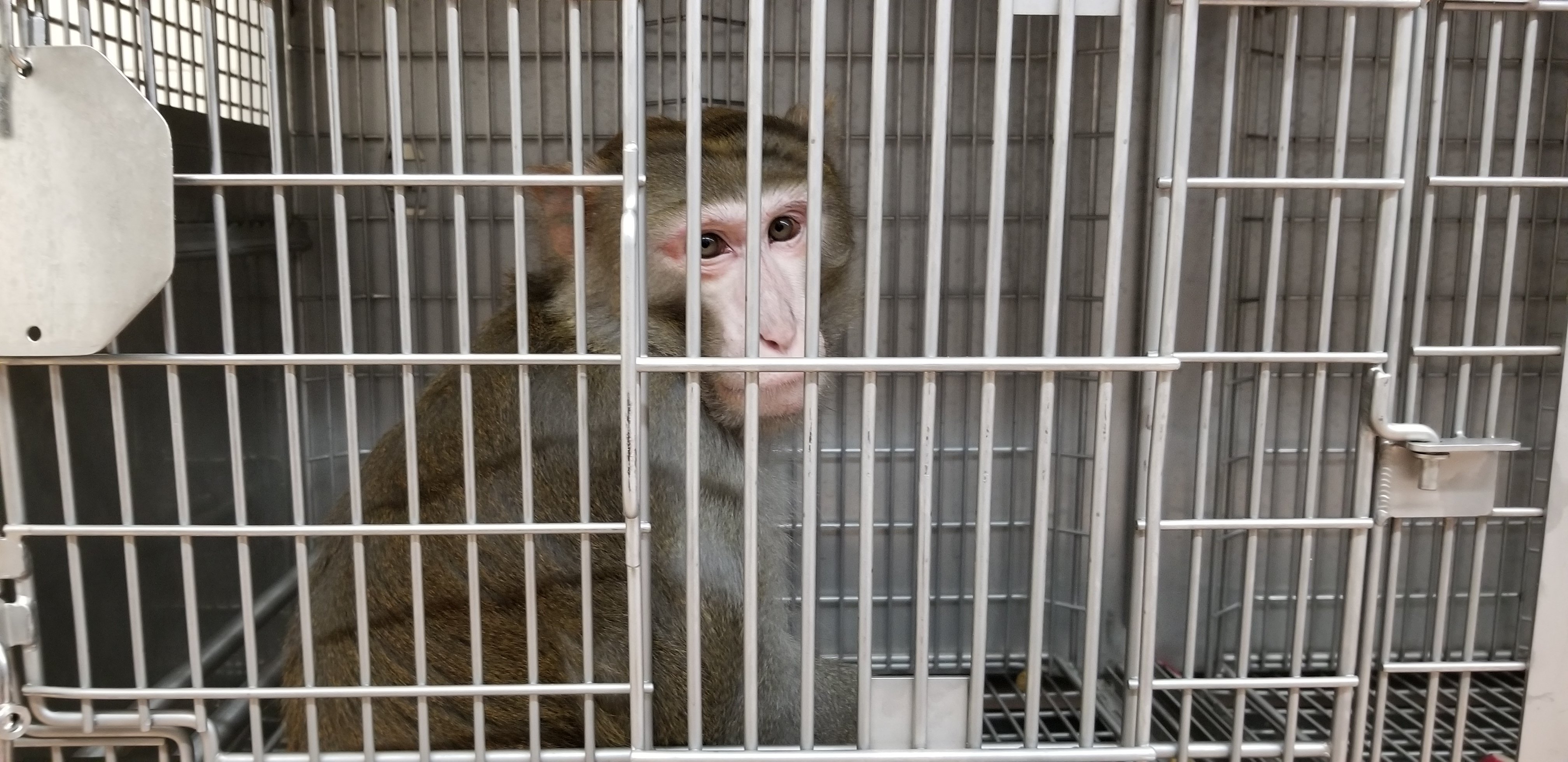
Princess Pulled Her Hair Out From the Stress of Being Used as a Breeding Machine
Many anxious animals, including Charlie, pulled out their own hair in desperation. Another macaque, Princess, had apparently plucked herself nearly bald but was still forced to breed. Her babies would eventually be taken away from her so that experimenters could torment and kill them.
Lemon and her cagemate, Lulu, were also nearly bald—apparently from pulling out their own or each other’s hair—but a worker said that there was “nothing much” they could do to help them.
Many other macaques suffered from chronic diarrhea. Noah and Zak—approximately 22 and 15 years old, respectively—had battled the condition most of their lives. Livingstone struggled with loose stools for 21 of his 27 years of constant confinement.
WNPRC is one of the most prominent primate laboratories in the U.S., one of seven federally funded National Primate Research Centers that were started supposedly to find treatments for human disease. But it could not even provide these and other monkeys whose digestive systems were ravaged by stress with adequate veterinary care or effective environmental and psychological enrichment.
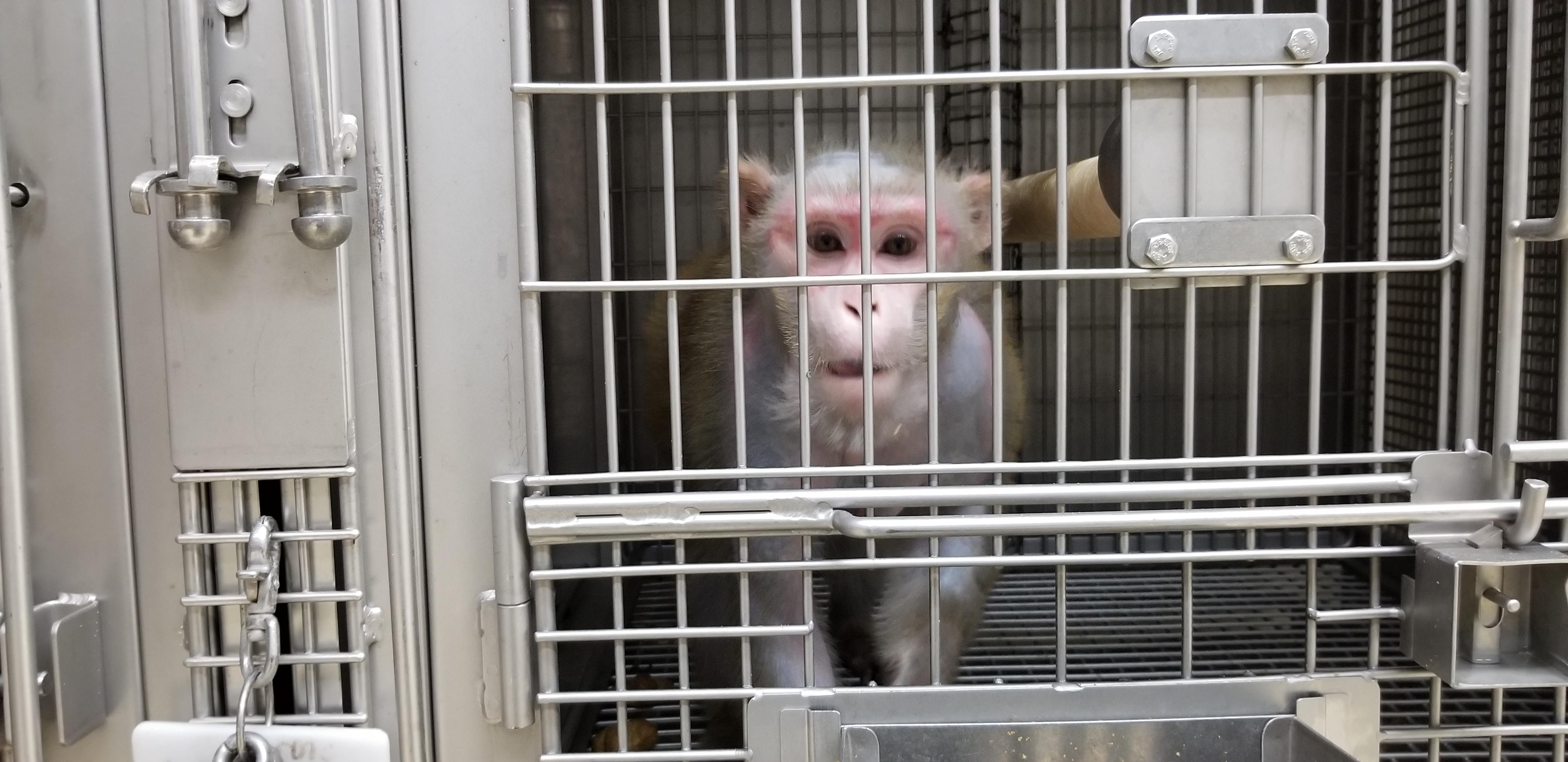
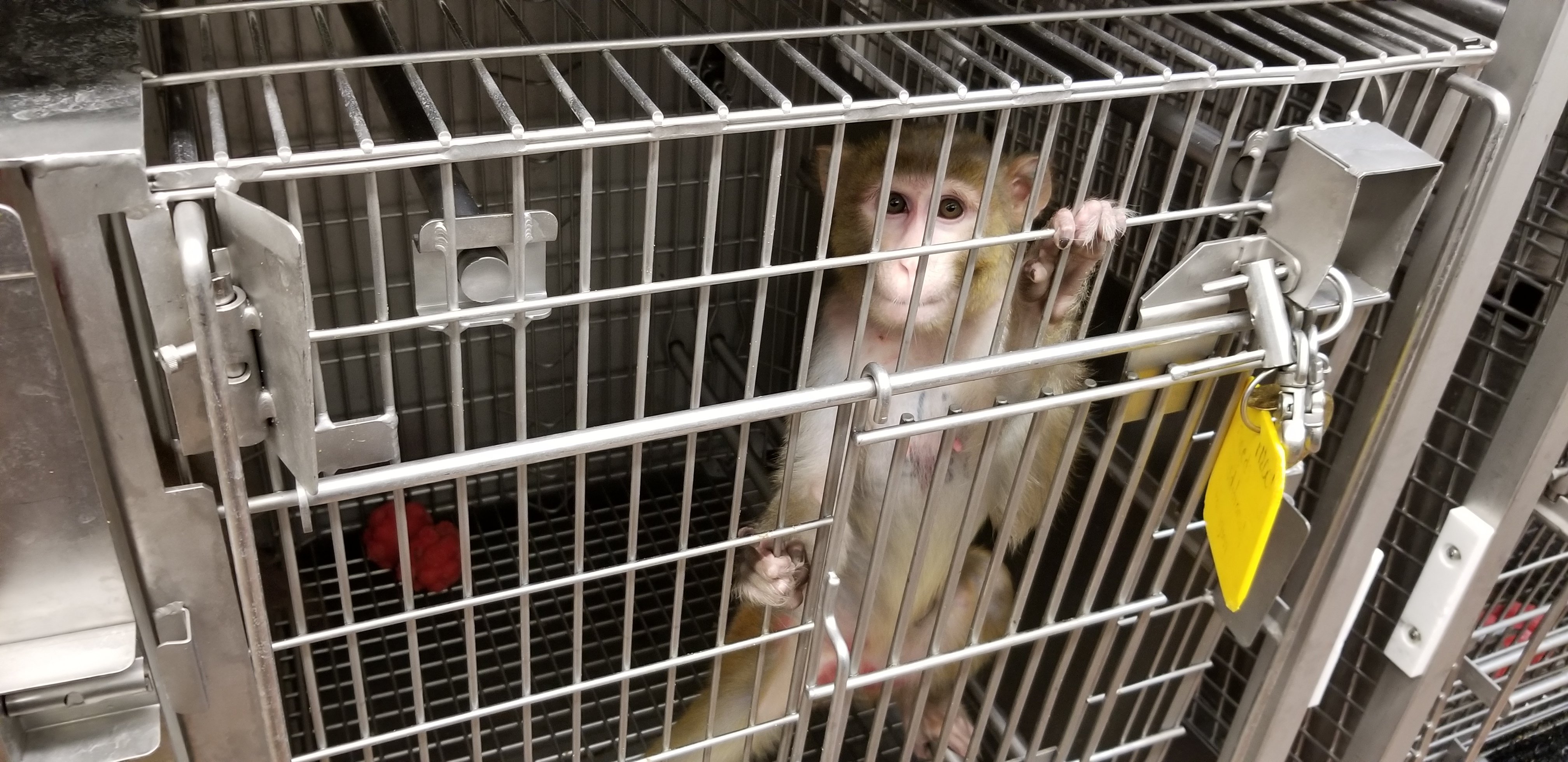
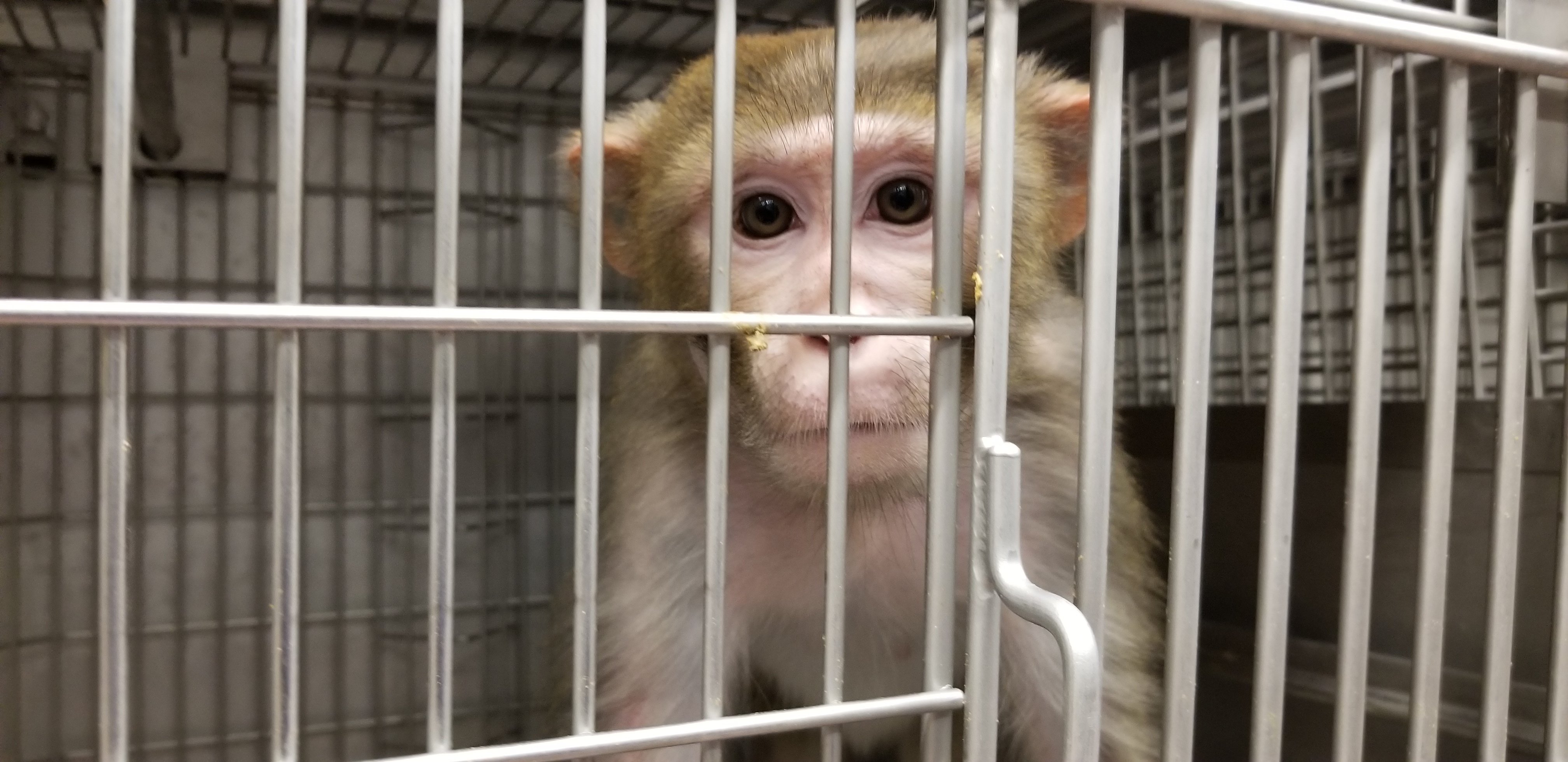
Misery From Day One: Cold Steel Cages Offer No Comfort to Mothers Giving Birth
Macaques are devoted, protective mothers who live in large family groups, gaze lovingly into their babies’ eyes, and even kiss them. In nature, the grief of a mother monkey whose infant has died is so overwhelming that she will continue to carry the limp body around for days.
But at WNPRC, pregnant monkeys gave birth alone in wire-bottomed cages, and their babies were taken away from them within a year.
Panic-stricken mothers and infants cried and defecated as workers pulled them apart.
Some infants, including Turnip and Cora—whose mother was reportedly killed in a Caesarean section experiment—were stuck in a bleak basement with only a stuffed animal for comfort. Workers pierced their ears with metal clamps and then rubbed ink over the wounds to tattoo them.
A staffer said that she didn’t want to reunite a monkey who had had an emergency Caesarean section with her baby because the infant didn’t “need a mom,” then called the mother a “b*tch” when she wouldn’t accept another infant.
One monkey apparently gave birth to a stillborn baby, and after she finally put him down, she began to spin in circles in anguish.
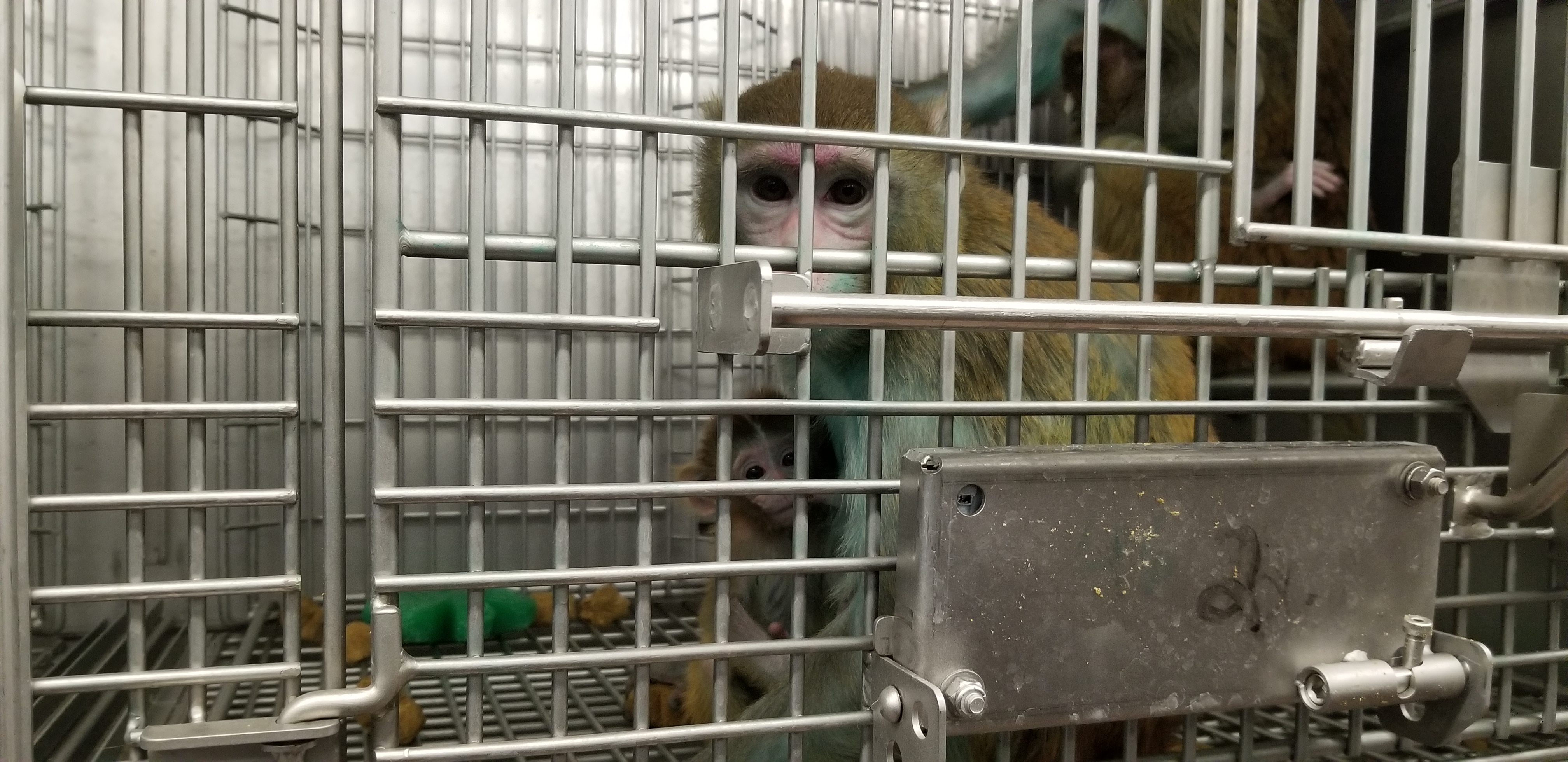
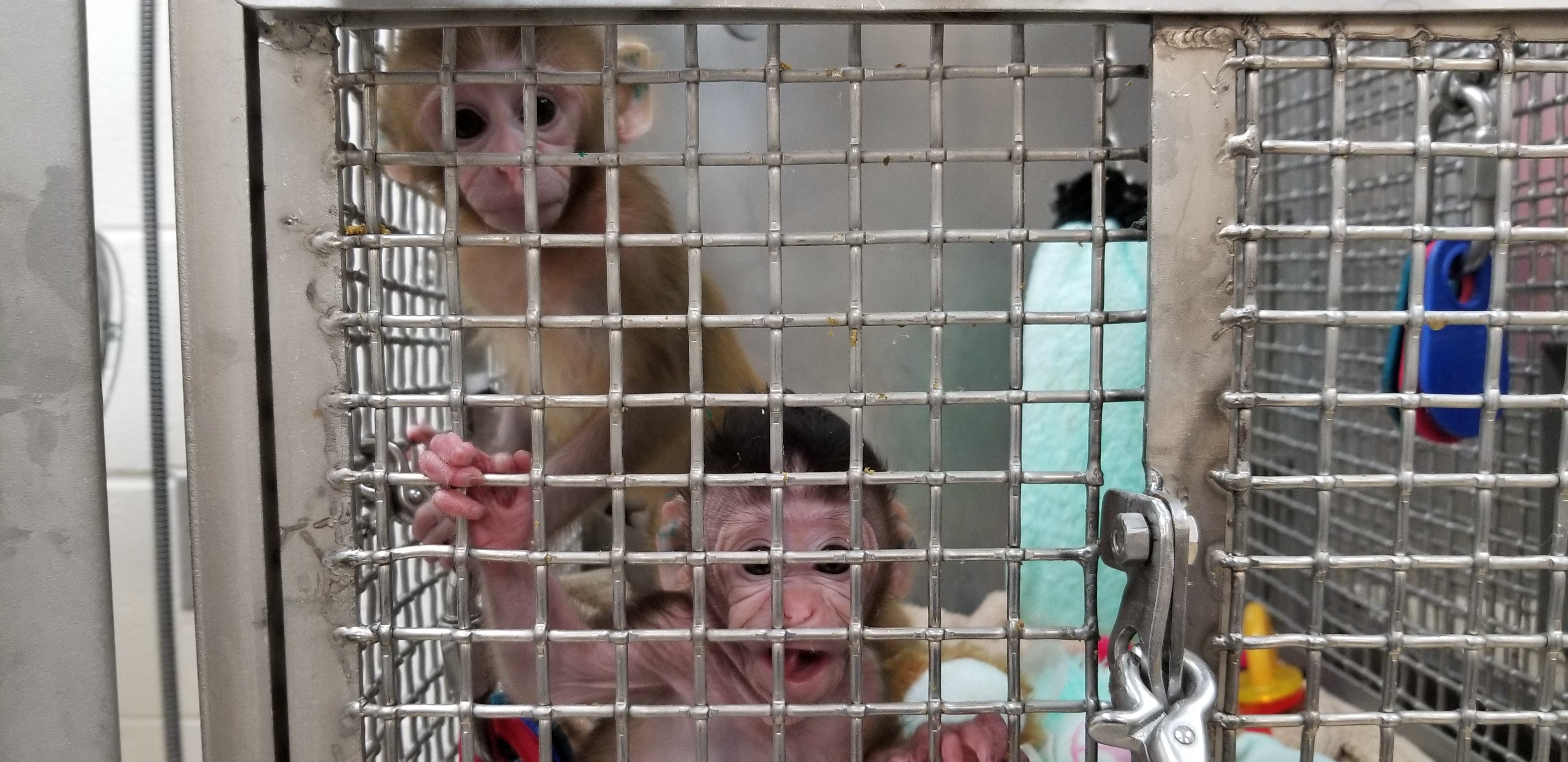
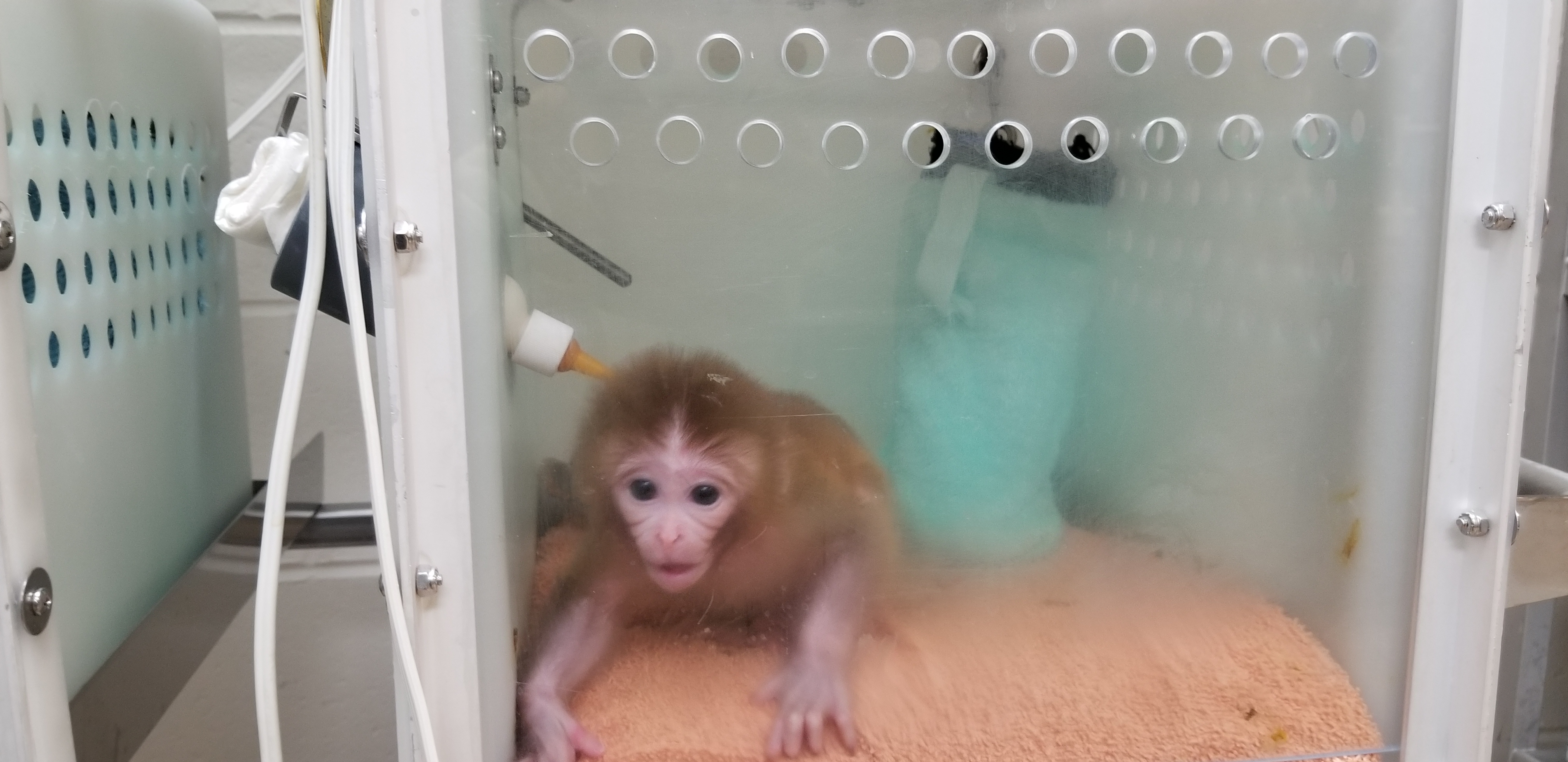
No One Gets out of Here Alive: Trying to Escape Laboratory Terror
Monkeys—including a mother clutching her infant—escaped into hallways and hid under cages when workers let them out of metal transport boxes.
A supervisor told the investigator that an animal once died after his cage was run through a high-temperature mechanical cagewasher while he was still trapped inside screaming in pain. She also said that an infant had died, apparently of starvation, after staff failed to notice that her mother wasn’t producing enough milk.
Another supervisor revealed that a worker broke a marmoset’s leg because they were being a “bit too … rough.”
WNPRC’s parent institution, the University of Wisconsin–Madison, took in nearly $650 million in taxpayer money from the National Institutes of Health (NIH) in fiscal year 2022, but it can’t keep the animals it imprisons healthy, safe, or even alive.
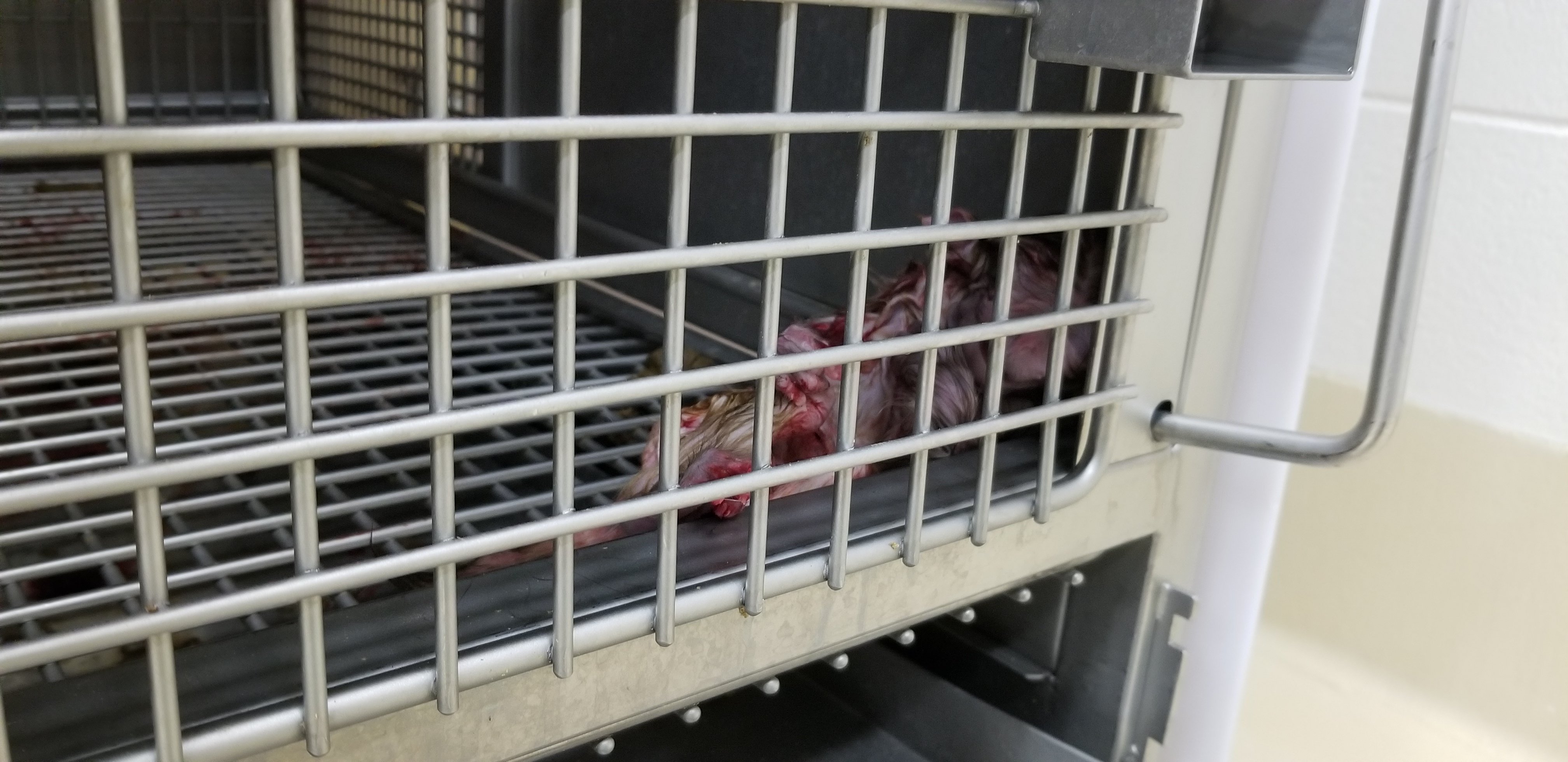
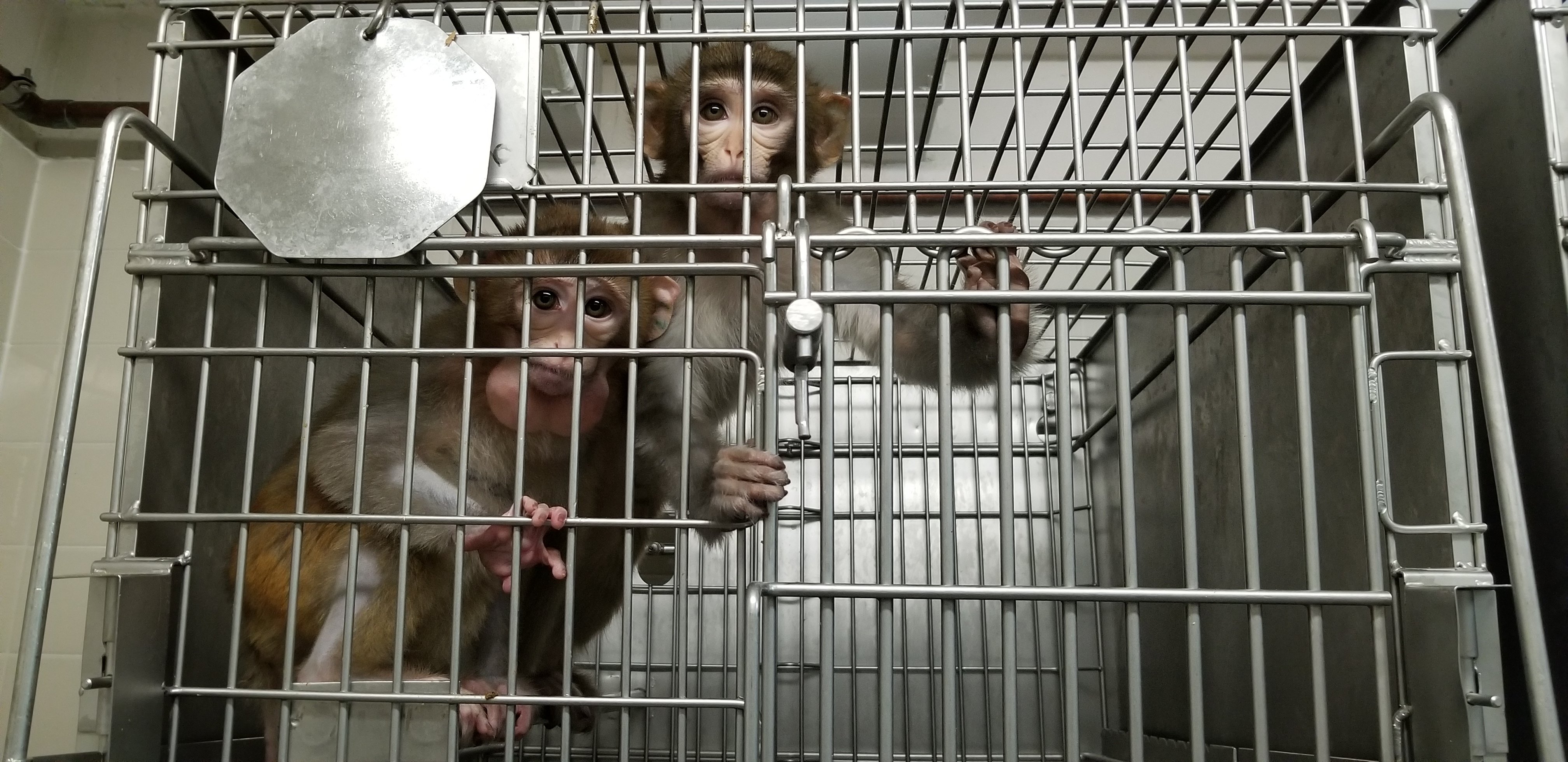

Monkeys Electroshocked Until They Ejaculate
When they weren’t being simply warehoused, animals were used in painful procedures and experiments.
Workers euphemistically referred to certain monkeys as “semen donors,” but they had certainly not volunteered for the painful process. Typically, the monkeys are fitted with metal collars, and workers use poles that fasten onto the collars to pull them out of their cages by the neck. The monkeys are then strapped into a restraint chair, and experimenters electroshock their penises until they ejaculate.
Many different types of experiments were being carried out at this facility. One experimenter bred monkeys infected with Zika and simian immunodeficiency virus, which is similar to HIV. Infant macaques were deprived of food overnight for “cognitive testing” and cried endlessly when separated from their companions. A supervisor said that experimenters attempted to infect marmosets—small, delicate monkeys—with COVID-19 but that “nothing happened.”
You Can Help Stop This!
The U.S. Department of Agriculture (USDA) has fined the University of Wisconsin–Madison repeatedly—including $74,000 in April 2020—for depriving animals of basic care, but PETA’s investigation shows that nothing has changed. We’ve submitted our evidence to the USDA and NIH and called for both agencies to open investigations. We’re also calling on WNPRC to release all its animals to reputable sanctuaries—starting with Cornelius.
Please join us in calling on the University of Wisconsin–Madison to shut down its primate laboratory.
Please send polite comments to:
Jennifer Mnookin
Chancellor
University of Wisconsin–Madison
[email protected]
Then take action below to ask NIH to stop using taxpayer money to lock up monkeys and fund tests on them.
If you think you have what it takes to carry out undercover investigations like this one, we want to hear from you. Clickhere to share your gratitude with the investigator who revealed this cruelty.
